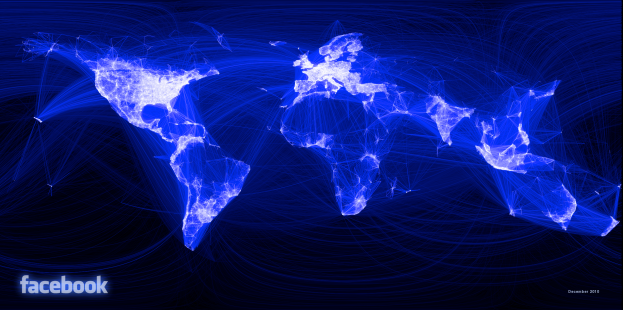
Pew Research continues to analyze the impact social networks are having on our lives and its latest study concludes the opposite of what some experts have been feeding us for years; as it turns out, sites like Facebook may actually encourage and strengthen close friendships, not diminish them and isolate users.
According to the study, the average American has 634 social ties in their overall network of friends and contacts (not just on social networks). This breaks down to about 506 ties for non-internet users and 669 ties for those who use the internet. As one might expect, the more someone uses the internet, the more social ties that person tends to have. The average person who uses the internet at home several times per day has a network of 732 ties, while someone who only goes online about once per day has an average of 616 ties. Likewise, those who have a mobile phone have an average of 664 ties, and those who have a smartphone tend to have about 717 ties.
This is all fine and dandy, but one might argue that “ties” don’t necessarily equate to how many actual close friends people have. Pew addresses this, noting that Americans actually have more “close friends” than they did two years ago, due mostly to the influx of smartphones and social networking sites like Facebook. The average American has 2.16 close confidants, up from 1.93 in 2008. Concordantly, only 9 percent of Americans reported that they had no close confidants in their life, down from 12 percent two years ago.
As it turns out, the average internet user is even less likely to have no confidants (7 percent) and and has more close ties (2.27 per person) than a non-user, who has an average of 1.75 close friends and a 15-percent chance of having no close friends at all. Those who regularly use social network sites (SNS) bump this number up; only 5 percent of SNS users have no close friends and overall, they average about 2.45 close friends.
To crank it up one more notch, Pew points to Facebook, in particular, as a driving force in gaining and retaining close friendships. Regular Facebook users have 9 percent more close friendships than any other group.
MySpace is dying, Facebook thriving

As a side note, the study also shows just how unpopular MySpace is these days (as if we needed to tell you). The graph above shows how long users of each site have been around. While sites like Twitter have a very low retainment rate with only 11 percent of users sticking around for at least two years, MySpace has the opposite problem: only 3 percent of its users are new to the service. Like Japan, it has an aging population. Worse, few of its users visit the site regularly, as seen in the chart below.

(The image at the top of this post was made by an intern at Facebook. It represents 1 million randomly chosen friendships. See a high resolution version of it here.)


